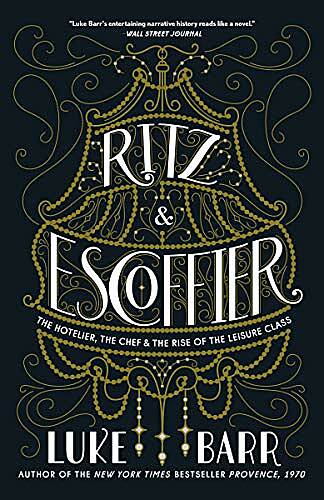
My highlights from the book:
1. He hasn't the least idea how much work and care, how much imagination and effort, go into the proper running of a hotel.
2. This was the very heart of a world that had shaped him, a world of privilege and luxury in which he had forged a place for himself, against all odds. Ritz had not been born to this life. Raised in a tiny village (population 123) in the foothills of the Swiss Alps, he was the last of eleven children, and had left home at the age of twelve.
3. He was a self-made man. And beneath his placid, imperturbable Swiss poise lay enormous ambition.
4. Ritz knew better than anyone the importance of the kitchen in creating a truly luxurious hotel experience. He had built his success in the hotel business in tandem with the brilliant chef Auguste Escoffier.
5. Ritz had spent years working for others and was now, finally, a hotel owner himself. Yes, his hotels were small, but they were his.
6. Seeing the wealth in London only reinforced his desire for independence-and his confidence in his own success.
7. Ritz was proud, but also full of what Marie thought were silly insecurities: about his Swiss peasant family background, his lack of education.
8. "You'll never make anything of yourself in the hotel business," his boss at one of his very first jobs had told him. "It takes a special knack, a special flair, and it's only right that I should tell you the truth: you haven't got it." Well, he'd got it now.
9. He had seen the future in London, and he wanted so much to be a part of it. César was happiest when he was busy, going nonstop, and the challenge the Savoy represented was tantalizing to him. At the same time, he was proud and immensely protective of his recent independence. He would not go back to being an employee. But he couldn't stop talking about it.
10. Auguste Escoffier was a disciplined and scientific Frenchman—calm, quiet, and thoughtful—he was a brilliant and innovative cook, inventing new dishes and always keeping careful notes.
11. Escoffier was not an educated man, but he had quickly discovered that he had a real talent for cooking, which he saw as both a science and an art.
12. He had begun to establish a new ethos for the professional kitchen, one that depended on respect: respect for the chefs, respect for the ingredients, respect for the artistry of cooking.
13. The food itself was less complicated than it had been, shorn of unnecessary ornamentation, inedible decoration, and too many sauces. His motto was "above all, make it simple."
14. Escoffier had written the menus: "I started looking for words that sounded gentle and pleasing to the ear while expressing a connection with the food being proposed. All well-presented menus should be evocative, and increase the desire to partake of a skillfully prepared and presented meal." The menu was a kind of poem, Escoffier believed-teasing, seducing, promising pleasure. A poem of anticipation.
15. He was the elegant and cultivated César Ritz, mastermind of luxury, but he couldn't escape the feeling that he might be revealed, at any moment, to be an impostor, nothing more than a servant. The truth, he feared, was detectable in the size of his hands and feet. They were large, peasant-size hands and feet, he was convinced, and he did everything possible to keep them hidden. He wore his shoes a half size too small.
16. The Provence was his and his alone. It was almost impossible to explain to Marie what that meant to him, how deep that feeling went. For Ritz, owning his own hotel was the signal achievement of his life, marking his escape from his past.
17. Ritz's outsize ambition, his insistence on his independence, was always bound to cause trouble, blurring the line between loyalty and self-interest.
18. The most damning charge in the entire letter was that Escoffier was taking kickbacks on all the food orders coming into the Savoy.
19. Escoffier and Ritz had been fired.
20. The words echoed in his head, even now. The idea that they should be seen as servants was the cruelest of insults. César Ritz, Auguste Escoffier, servants?
21. Ritz was a perfectionist, and determined that every detail be just right.
22. "The best is not too good," Ritz would say, This was his philosophy about everything.
23. It should instead be "a work tool more than a book, a constant companion that chefs would always keep at their side." A book for working professionals.
24. Again, a tiny detail, a solution to a problem no one had ever even put into words, but one that Ritz, in his obsessive way, had noted and now acted upon.
25. Ritz was filled with overwhelming pride and, at the same time, a creeping sense of inadequacy.
26. To think that his parents had lived and died in Niederwald, had never even left Switzerland, not once, and here he was, the proprietor of the Hôtel Ritz in Paris, the most famous hotelier in the world, and now he was opening a new property in London.
27. They both looked back with amazement at what they had achieved together in the 1890s, how different the world was then, how they themselves had changed it.
Learn from history's greatest entrepreneurs by listening to Founders. Every week I read a biography of an entrepreneur and find ideas you can use in your work.